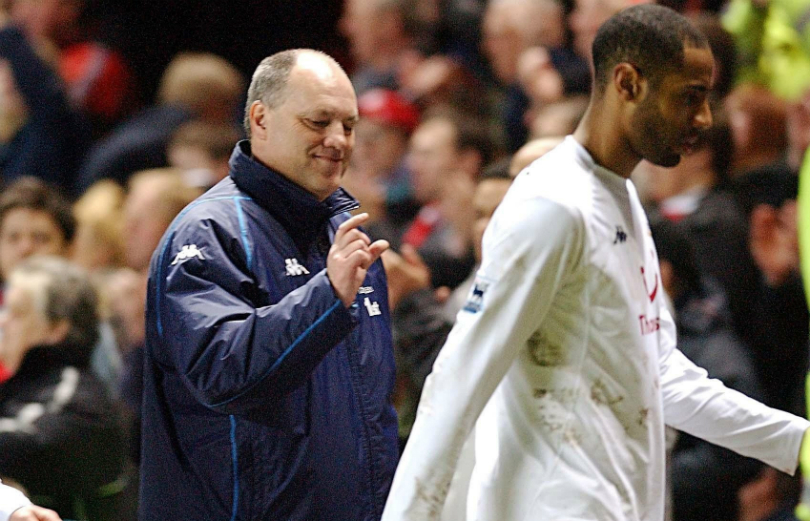Kanoute: Why coaching is harder than playing
Former Tottenham and West Ham striker Freddie Kanoute now manages two academies in Mali and Dubai - he discusses the challenge of switching from playing to coaching

You recently completed your coaching badges – are you keen to become a coach?
I’m in no hurry to be a coach. I manage a couple of academies back home and it was more for my personal knowledge, to have another perspective on football. I’m not in a rush – I don’t plan to be a coach or manager any time soon. I might be one day but it’s not one of my priorities. I just want to know how to work better with my academy coaches. I want to see the game from another perspective. I have an academy in Dubai where I live and I manage another one in Mali in Africa.
What’s the difference between playing and coaching?
This is completely different. I'm lucky enough to have played a lot of games, so I understand what I want from a player's point of view. But I realise it’s not so easy to convey the message and make my players understand what I want and also create the appropriate setup and communication to make them understand. You have to juggle with many things and take care of many parameters at the same time. Being a coach is definitely more difficult for players. I find it really challenging and interesting.
Who were the best coaches you worked with in terms of getting their message across?
They all had different ways of conveying the message. When I went to Sevilla, we had Juande Ramos. He wasn’t the best at communicating all the time but he was very clear and concise. I still remember some of his pre-match talks and he was really clear – he knew what he wanted from us. He gave us two or three small messages and just repeated them. He didn’t talk for hours and give us too much information. One thing I’ve learned from my experience is that if you give too much information to the players, they get lost. You have to be clear, concise and know where you want to go and how you want to go there. Juande Ramos was great at that. We always had a great gameplan – particularly against Barcelona and Real Madrid. We beat those sides many times and won trophies and that was why.
What are the most difficult areas of coaching?
Transferring your idea of a session to the pitch and managing the session on the pitch well enough so you don’t lose control. This is tricky and technical. You can put out a session but sometimes it goes out of your control. It’s about how to manage your session – you need to get players to understand the purpose of what you’re doing and you keep people focused on the main topic of the session. I would say managing different personalities and parameters at the same time is quite difficult as well. As a player, it’s just all about you. All I had to do was talk to the guy next to me – I was more self-centered. As a coach it’s all about small details.
Does the course prepare you for the reality of academy coaching?
Definitely. Every time I went on the A Licence course and then went back to my academies, there would be something I improved on. One week isn’t going to make you 100 per cent better but it may help you improve just a little. It gives you ideas to develop your style. The key is to go out there and do as much coaching as possible.
What qualities did your best coaches possess?
I think they were able to create a team spirit. The best coaches I worked for made it about the players. A lot of coaches want to be the centre of attention and it’s not successful. The coaches who put the players in charge are the best. Those who were capable of doing that – that’s when team sprit developed. The coaches who engaged us the most. They were engaging the team – keeping us motivated and interested in what we were doing.
How would you coach someone like yourself?
I sometimes gave a false impression of myself, that I was really laid back and carefree. When I was in the academy I had a coach that was really hard on me. He made me improve a lot because I had a laidback style. We can’t all play the same way. I am laid back and calm. But I learnt how to be more aggressive and fight more. I recall also that in Spain it was better for me. I’ve played as a lone striker at West Ham. If you don’t fight you don’t play. So I’ve learnt there are many different sides to the beautiful game. I don’t want to see kick and rush and tackles everywhere. I learned a lot in England but my experience in Spain was also important. They really enjoy the ball and possession. It’s a global experience.
Get FourFourTwo Newsletter
The best features, fun and footballing quizzes, straight to your inbox every week.
Recommended stories
How to improve your confidence as a coach
Do former players make good coaches?
Making the transition from player to coach
6 ways to improve your leadership skills
The DNA of a great coach
